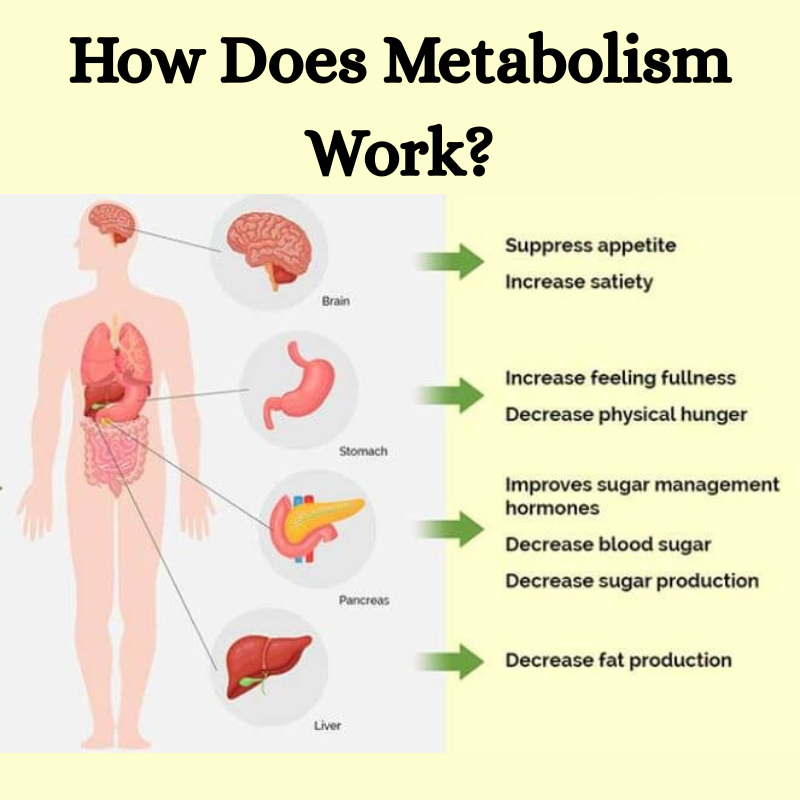Semaglutide, found in popular brand names like Ozempic and Wegovy, has quickly become a go-to medication for both type 2 diabetes and weight management. But a common question remains: does semaglutide speed up metabolism?
These changes can indirectly enhance how efficiently the body processes calories and manages weight. In this guide, we’ll break down the real science behind semaglutide and metabolism, separating fact from myth so you can better understand how it works.
What Is Semaglutide?
Semaglutide is a GLP-1 receptor agonist, a type of drug that mimics the hormone glucagon-like peptide-1 (GLP-1). This hormone plays a key role in:
- Regulating blood sugar
- Slowing gastric emptying
- Signaling fullness to your brain
- Reducing appetite
Initially approved for type 2 diabetes, semaglutide is now widely prescribed for weight loss due to its ability to help people lose significant amounts of weight over time.
How Does Metabolism Work?

Your metabolism refers to the processes your body uses to convert food into energy. Your basal metabolic rate (BMR) is the number of calories your body burns at rest.
Factors that affect metabolism include:
- Age
- Gender
- Muscle mass
- Hormones
- Activity level
Now, when people ask if semaglutide speeds up metabolism, they’re typically referring to whether the drug helps increase BMR or overall energy expenditure.
Does Semaglutide Speed Up Metabolism?
The short answer is: not directly.
Semaglutide does not function like a stimulant (such as caffeine or Adderall) that revs up your system. Instead, it supports weight loss by lowering appetite, improving insulin sensitivity, and slowing digestion all of which indirectly impact your metabolic rate.
How It Influences Metabolism Indirectly
While semaglutide doesn’t “speed up” your metabolism in the traditional sense, it may help prevent metabolic slowdown, a common issue during weight loss. This means:
- You may burn more calories by exercise than expected while losing weight
- You’re less likely to experience extreme metabolic adaptation, which often causes weight regain
- It can help preserve muscle mass, which supports a healthier BMR
In clinical trials, patients using semaglutide showed less drop in resting energy expenditure per pound lost compared to those losing weight through diet alone.
Appetite Suppression vs. Metabolic Boost
One of semaglutide’s main effects is appetite suppression. By making you feel full sooner and less hungry between meals, it naturally lowers your calorie intake.
Many mistake this for an increased metabolism, but here’s the difference:
- Metabolic boost = burning more energy per hour
- Appetite suppression = consuming fewer calories overall
Both can lead to weight loss, but semaglutide achieves it without ramping up your metabolism directly.
Does Semaglutide Preserve Muscle?
Muscle mass is essential for maintaining a healthy metabolism. Rapid weight loss often leads to muscle loss, which can reduce BMR. However, semaglutide has shown promising signs of preserving lean muscle mass, especially when combined with a vegan foods diet and resistance training.
This helps users:
- Maintain a stronger metabolism
- Avoid “yo-yo” weight gain
- Experience more sustainable fat loss
Potential Benefits of Semaglutide for Metabolic Health
While it doesn’t directly increase metabolism, semaglutide still offers metabolic health benefits, such as:
- Improved insulin sensitivity
- Lower blood sugar levels
- Anti-inflammation deit
- Improved lipid profiles (cholesterol and triglycerides)
These benefits indirectly support a healthier, more efficient metabolism over time.
Risks and Side Effects to Consider
Like all medications, semaglutide comes with potential side effects. These include:
- Nausea and vomiting
- Constipation or diarrhea
- Fatigue
- Possible loss of lean body mass without proper diet/exercise
- Rare but serious risks like pancreatitis or thyroid tumors (mainly in animal studies)
Always consult a healthcare provider before starting semaglutide for weight loss or metabolic support.
Natural Ways to Support Metabolism
Whether you’re using semaglutide or not, you can naturally support your metabolism by:
- Building muscle through resistance training
- Eating enough protein to preserve lean mass
- Staying hydrated
- Sleeping 7–9 hours nightly
- Avoiding crash diets that can slow metabolism long term
These steps work well alongside medications like semaglutide for lasting results.
FAQs
1. Does semaglutide burn fat or muscle?
Primarily fat. Clinical trials show that most weight loss from semaglutide comes from fat mass, although some muscle loss can occur if not paired with proper nutrition and strength training.
2. Is semaglutide better than diet alone for metabolism?
Yes, because it helps preserve energy expenditure and muscle mass more effectively than diet alone, making long-term weight loss more sustainable.
3. Can semaglutide improve thyroid function or hormones?
No direct evidence links semaglutide to improved thyroid function, but weight loss may indirectly balance hormones in some individuals.
4. How fast do people lose weight on semaglutide?
Many lose 1–2 pounds per week. Over 68 weeks, clinical trials reported average weight losses of 15–20% of body weight.
5. Should I exercise while on semaglutide?
Yes, combining semaglutide with exercise — especially strength training — helps maintain muscle and support metabolism during weight loss.
Final Thoughts
So, does semaglutide speed up metabolism?
Not directly — but it helps support a healthier metabolic state. Instead of ramping up your internal engine, semaglutide works by controlling appetite, stabilizing blood sugar, and preserving energy balance during weight loss.
When paired with smart lifestyle choices like proper diet, sleep, and resistance training, semaglutide can be a powerful tool for improving overall metabolic health — the right way.

